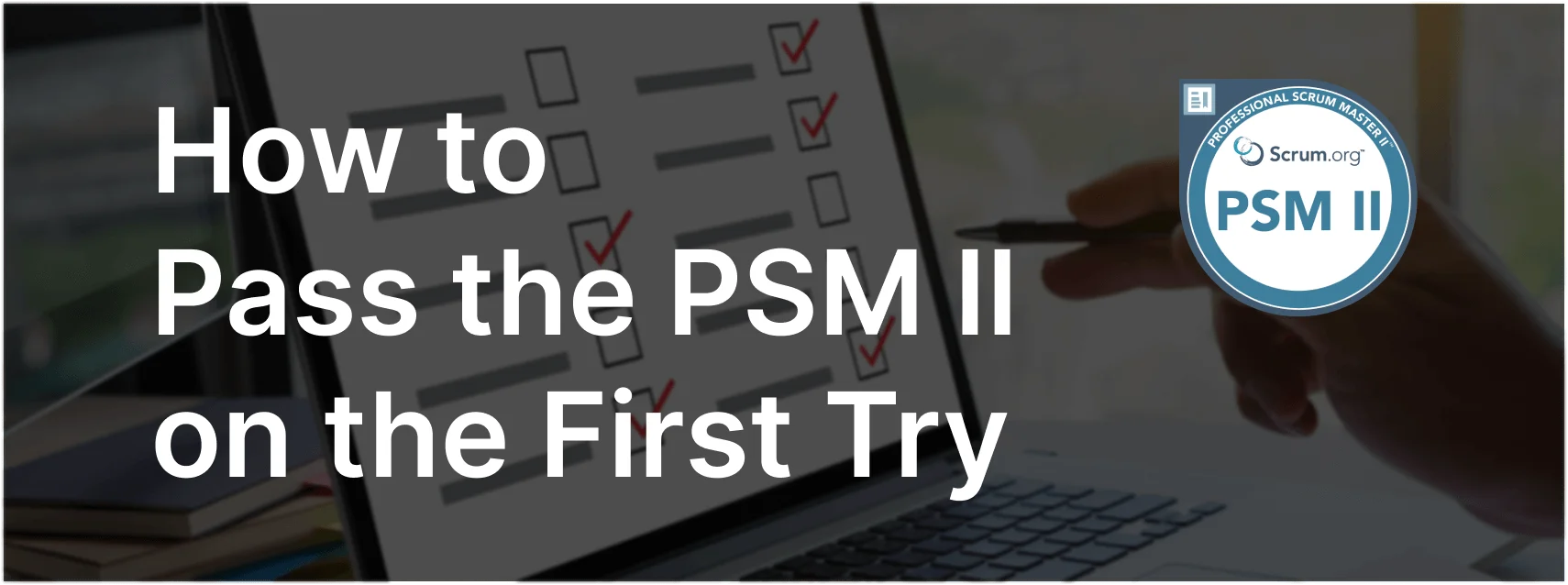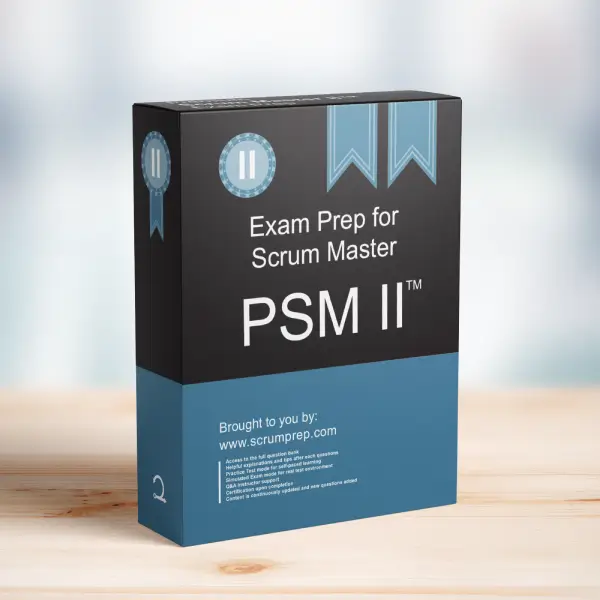Effective Recovery Strategies for Scrum Projects
When faced with challenges in meeting expected velocities, it’s crucial for a Scrum Team to address issues transparently and strategically. This article explores a specific exam question about how to recover from velocity shortfalls, providing detailed explanations and insights relevant to the PSM II exam.
Exam Question
Marian is a Product Owner working on a Scrum Team on a new release for her product. Based on the average velocity of the previous release Marian estimated the project to take seven Sprints. Average velocity in the previous release was thirteen completed units of work per Sprint. Development is three Sprints underway, with four more Sprints to go until the release. Product Backlog has been stable.
Over the first three Sprints, the Developers report their average velocity is nine, while not having fully tested all the delivered functionality. The Developers estimate that the unfinished testing would have required 10% of a Sprint’s time. The Developers believe that the required velocity of thirteen is within their reach. What is the most effective way to recover? (choose the best answer)
- A. In the next Sprints, the Developers keep making sure that all of the selected scope per Sprint is as done as possible, at least at the past level of 90%. In every Sprint the undone work of the previous Sprint is estimated and added to the Sprint Backlog. It comes on top of the expected forecast of 13 units so it doesn’t mess up progress on the Product Backlog.
- B. The Developers inform Marian that the progress she has perceived to date is not correct. The Increment is not releasable. They give Marian their estimate of the effort it would take to get the past work done, and suggest doing that work first before proceeding with new features. The Developers also re-estimates the effort to complete the remaining backlog, including all testing. In the end, it is Marian’s call to continue the project or to cancel.
- C. Transparency needs to be restored by adding the undone work to the Product Backlog. The Developers must figure out a way to deliver in the upcoming Sprints a velocity of not only 13 units of new work, but also two additional points to catch up undone work. It is the Scrum Master’s duty to assess whether such repair is possible. If not, the Scrum Master initiates a restart with a more reliable team or cancels the project. The Scrum Master will have to inform the Product Owner and the stakeholders.
- D. The Developers set the open work aside to be performed in one or more release Sprints. They remind Marian to find funding for enough Release Sprints in which this remaining work can be done. Up to one release Sprint per three development Sprints may be required. It is Marian’s role to inform users and stakeholders of the impact on the release date.
Correct Answer
B. The Developers inform Marian that the progress she has perceived to date is not correct. The Increment is not releasable. They give Marian their estimate of the effort it would take to get the past work done, and suggest doing that work first before proceeding with new features. The Developers also re-estimates the effort to complete the remaining backlog, including all testing. In the end, it is Marian’s call to continue the project or to cancel.
Explanation
Correct Answer
B. The Developers inform Marian that the progress she has perceived to date is not correct. The Increment is not releasable. They give Marian their estimate of the effort it would take to get the past work done, and suggest doing that work first before proceeding with new features. The Developers also re-estimates the effort to complete the remaining backlog, including all testing. In the end, it is Marian’s call to continue the project or to cancel: This option emphasizes transparency and realistic planning. It ensures that Marian, the Product Owner, has a clear understanding of the current state of the Increment and the effort required to make it releasable. By reassessing and re-estimating the remaining work, the team can provide a more accurate forecast, allowing Marian to make an informed decision about the project’s future.
Incorrect Answers
A. In the next Sprints, the Developers keep making sure that all of the selected scope per Sprint is as done as possible, at least at the past level of 90%. In every Sprint the undone work of the previous Sprint is estimated and added to the Sprint Backlog. It comes on top of the expected forecast of 13 units so it doesn’t mess up progress on the Product Backlog: This approach risks creating technical debt and continued unreleasable Increments, as the team is not addressing the root cause of the problem.
C. Transparency needs to be restored by adding the undone work to the Product Backlog. The Developers must figure out a way to deliver in the upcoming Sprints a velocity of not only 13 units of new work, but also two additional points to catch up undone work. It is the Scrum Master’s duty to assess whether such repair is possible. If not, the Scrum Master initiates a restart with a more reliable team or cancels the project. The Scrum Master will have to inform the Product Owner and the stakeholders: While transparency is crucial, this option places unrealistic expectations on the team to significantly increase their velocity without addressing the underlying issues.
D. The Developers set the open work aside to be performed in one or more release Sprints. They remind Marian to find funding for enough Release Sprints in which this remaining work can be done. Up to one release Sprint per three development Sprints may be required. It is Marian’s role to inform users and stakeholders of the impact on the release date: This option defers the issue, potentially leading to a build-up of undone work and impacting the overall quality and release timeline.
Responsibilities in Scrum
- Product Owner: Marian, as the Product Owner, is responsible for making informed decisions about the project’s direction based on the team’s progress and the state of the Product Backlog.
- Scrum Master: The Scrum Master facilitates transparency and helps the team address impediments. They ensure that the Scrum process is followed and that any issues are openly communicated and resolved.
- Developers: The Developers are responsible for delivering potentially releasable Increments and providing accurate estimates of the effort required to complete the work.
Relevance to the PSM II Exam
Understanding how to address velocity shortfalls and maintain transparency in Scrum projects is crucial for the PSM II exam. It demonstrates advanced knowledge of Scrum principles and the importance of effective communication and realistic planning. Mastering this concept ensures that Scrum Masters can effectively guide their teams through challenges and maintain project integrity.
Key Takeaways
- Transparency and realistic planning are essential for effective Scrum project management.
- The Product Owner must be fully informed about the project’s progress to make decisions about its future.
- Addressing unfinished work promptly and accurately is crucial to maintaining the quality and releasability of the product.
Conclusion
Recovering from velocity shortfalls in Scrum requires transparency, realistic planning, and effective communication. By reassessing the effort required to complete the work and ensuring that the Product Owner is fully informed, Scrum Teams can maintain the integrity and quality of their projects. Understanding these recovery strategies is essential for effective Scrum implementation and success in the PSM II exam. For comprehensive preparation and practice exams, check out PSM II Exam Prep to enhance your understanding and application of Scrum principles.


